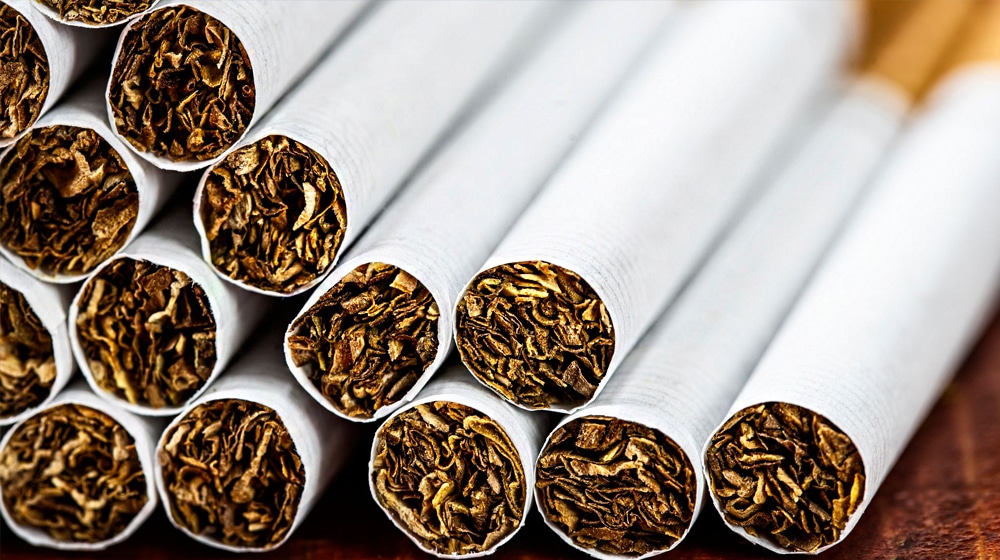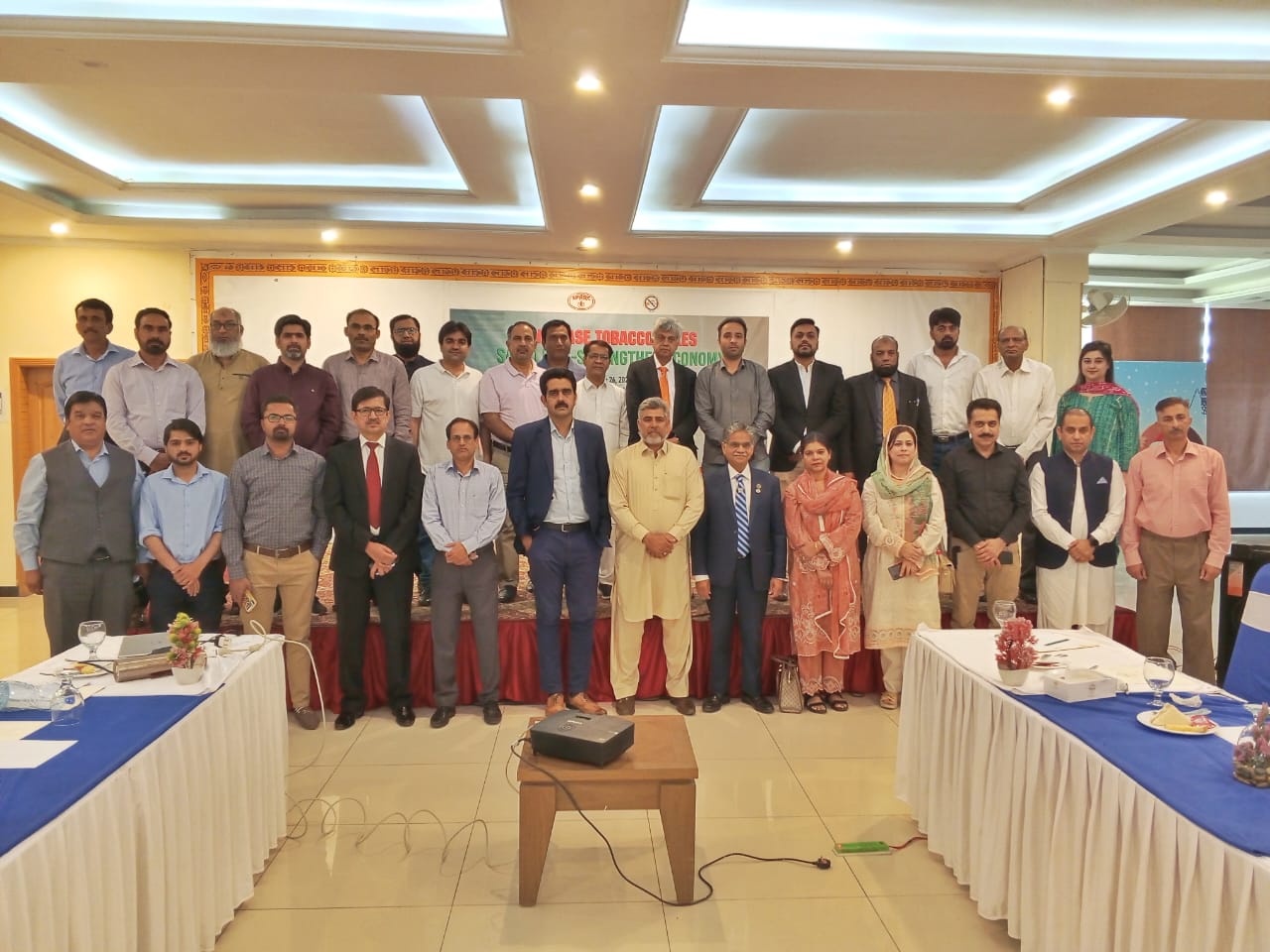|
Getting your Trinity Audio player ready...
|
In February this year, Pakistan’s federal government announced to jack up Federal Excise Duty (FED) on cigarettes after a consistent demand from anti-tobacco and social activists as a measure to curb tobacco consumption among the public and increase revenue to support the fragile economy. The government did increase tax on cigarettes despite a strong pressure and lobbying by multinational tobacco companies which enjoy a large share of market in the South Asian nation of over 220 million people.
The Federal Board of Revenue (FBR) through a notification1 raised the duty on tier-1 cigarettes from 130 rupees to 330 rupees, amounting to a net increase of 154 percent. Similarly, the tax on the tier 2 cigarettes was increased from 41 rupees to 101 rupees, representing an increase of 146 percent.
This is the first time in the country’s history that such a huge tax has been levied on cigarettes to discourage their use and collect the revenue which the government could spend on improvement of education and health facilities across the country. The tobacco industry is causing a loss of around 620 billion rupees to the national exchequer in terms of diseases like cancer, chronic respiratory diseases, and cardiovascular disease, besides causing 337,500 deaths every year.
The government is expecting to collect around 200 billion rupees in taxes from the tobacco industry this year after the tax hike. In the last fiscal year, the tax collection from the tobacco industry was recorded 148 billion rupees.
In addition to the growth in the revenue, the added advantage of the taxes is that it has led to a significant decrease in number of smokers with people already crushed by a double-digit inflation and unemployment. The ground surveys suggest that a one in every ninety-four chronic smokers has quit smoking since February this year as their affordability declines with a raise in the cigarettes prices. The smokers surveyed for this research study said that purchasing cigarettes has become difficult for them after the price hike as they were preferring to spend this money on food and education of their children.
On the other hand, the multinational tobacco companies have been lobbying the government to withdraw the tax hike on the cigarettes, saying the share of illicit cigarettes was increasing in the market and this would result in loss of revenue to the government. The multinationals claim that share of the illicit cigarettes was recorded around 40 percent in the market, though the ground surveys suggest their number is not more than 18 percent. Pakistan Customs officials believe that in the 18 percent illicit cigarettes, the share of the smuggled cigarettes was significant which could be overcome easily through better border management.
Majority of the illegal cigarettes available in the market are smuggled multinational brands. The multinational tobacco companies have been lobbying the government ministers and high-ups to withdraw the tax as this had resulted in reduction of their sales and profits. There are over 31 million tobacco users (15+ adults) in Pakistan, one of the highest in the world. Therefore, the multinationals have been pushing the government to revoke the tax hike to boost their sales and profits which is against the World Health Organisation’s guidelines.
The government should stick to its position on the tax hike in the national interest and implement the health guidelines to discourage the tobacco consumption among youth. The WHO says the evidence suggests that significantly increasing taxes on tobacco products and cigarettes remains the single most effective measure for reducing their use.
Drop in Sales
The ground surveys carried out in Islamabad, Rawalpindi, Lahore and Peshawar reveal that one in every ninety-four smokers was forced to quit smoking after a significant raise in taxes ranging from 146 percent to 154 percent in February this year. The government raised the Federal Excise Duty (FED) on cigarettes through a mini budget2 to increase its tax revenue from 148 billion rupees in last fiscal year to 200 billion rupees this fiscal year. The Federal Board of Revenue (FBR) data shows that out of 148 billion rupees revenue, 117.2 billion rupees were collected from FED and 31.4 billion rupees from sales tax. The FED growth over the last year was recorded at 9.2 percent while the sales tax growth remained 12.5 percent.
The increase in the tax comes at a time when inflation in the South Asian nation of over 220 million was recorded at 31.55 percent in February and jumped further to 36.42 percent in April3 with a massive unemployment.
The interviews with the smokers and data collected from these cities show that they are now saving the money by quitting smoking to fulfil other needs like food, education and health of their children, and paying the utilities. More than 31 million4 Pakistani adults (15+) or about 19.7 percent of the total adults use some of tobacco which is one of the highest in the world.
After a long and consistent lobbying of many anti-tobacco and social activists, the government finally agreed to raise taxes on the tobacco products and this proved a beneficial measure in curbing the tobacco use and increasing the revenue despite a propaganda by the multinational tobacco companies.
The evidence suggests the sales of cigarettes would further decrease in the coming months across Pakistan if the government would maintain the taxes on them. The taxes levied on the cigarettes are in consistent with the World Health Organisation’s guidelines to discourage the tobacco consumption by increasing its price. The WHO says that increase in taxes on tobacco products result in higher prices of cigarettes in the market, making them less affordable for the people especially the youth.
The youth and low-income families immediately respond to the price hike of cigarettes, they prefer to enjoy the health and economic benefits of quitting smoking instead of starting. Saving lives with tobacco taxes lessens the enormous healthcare burden and economic losses that result from tobacco-related disease. Tobacco taxation is also relatively inexpensive to implement and generates significant revenues over the short and medium term.
The WHO supports all its member states in using tobacco taxes to meet their health, revenue and equity objectives,5 so Pakistan’s initiative is in line with this policy to discourage the use of tobacco among the public and generate additional revenue through the taxes.
Illicit and Smuggled Cigarettes
Multinational tobacco companies suggest that share of illegal and illicit cigarettes in Pakistani market is close to 40 percent6 which was causing loss of billions of rupees to the national exchequer in terms of tax evasion. Vendors, wholesalers and customs officials interviewed for this study suggest that this number was intentionally exaggerated by the multinationals to mislead the government.
The multinationals have been lobbying the authorities to withdraw additional taxes on tobacco products, saying that this had increased share of the illicit and illegal cigarettes in the market and would result in loss of tax collection. The vendors and wholesalers say that sale of multinational brands have significantly decreased after the FED on the cigarettes, therefore they are pushing the government to revoke the taxes.
The multinationals move is purely aimed at boosting their profits by selling more cigarettes to Pakistani public in complete disregard to the WHO health guidelines.
The ground surveys and interviews clearly show that share of illicit and illegal cigarettes in Pakistani market was not more than 18 percent, and this included the smuggled brands of the same multinational companies. The federal government can initiate a number of measures to curb the smuggling to further reduce the share of the illicit cigarettes in the market.
The FBR has taken several actions to curb the trade of illicit and smuggled cigarettes in the country including installation of track and trace system in tobacco factories to keep a check on production of the cigarettes and then their actual sales in the market.
It has also declared the sale and purchase of non-duty paid cigarettes a crime and its teams also raid different marketplaces to confiscate the consignments and impose fines. Transit trade with Afghanistan and Iran remain major sources of smuggled cigarettes in Pakistan7, so it should be properly monitored at relevant borders.
The multinational companies cannot hide behind the illicit and illegal cigarettes just to evade taxes and boost their profits by selling cheap cigarettes to Pakistani people. The smuggling of multinational companies’ cigarettes in the local market remains a major concern to the federal authorities as this would largely remain out of the tax circle. The companies were trying to make up their loss in profit with increase in taxes on cigarettes through the sale of their smuggled brands on cheaper rates in the local Pakistani market.
Higher Tax Saves Lives
The tobacco industry in Pakistan is causing a loss to the national exchequer of at least 620 billion rupees in terms of diseases like cancer chronic, respiratory diseases, and cardiovascular disease, besides causing 337,500 deaths every year8, according to The Capital Calling, a network of academic researchers and professionals. The government is required to raise taxes on tobacco products to at least 70 percent9 of the retail price to discourage their use and collect additional revenues to spend them on improvement of health infrastructure. The government can effectively bring down its health expenditure on treatment of the diseases caused by the tobacco use by raising the taxes to discourage its use and reduce the number of deaths.
An estimated eight million people die prematurely every year from tobacco-related illnesses, such as emphysema and lung cancer. Furthermore, the World Health Organization reports the cost of smoking to the global economy comes to more than $1.4 trillion in health expenditures and lost productivity.
The government needs to implement the strongest tobacco taxation policies as per the WHO guidelines to save precious lives and reduce burden on the health infrastructure. This remains paramount for the government to protect its youth especially young children from the menace of tobacco products including the cigarettes. At least 1200 children10 between the ages of 6-15 years start smoking in Pakistan every day, and the government could easily reverse the trend by sticking to its position of increased FED on the cigarettes levied in February this year.
Recommendations
The federal government can take the following measures to further bring down the sale of cigarettes in Pakistan and save precious lives:
- Raise taxes on tobacco products to at least 70 percent of the retail price
- Do not bow down before pressure and lobbying of the multinational tobacco companies and their propaganda about share of illicit cigarettes in the market
- Warn public about dangers of tobacco use through mass media awareness campaigns
- Enforce strict ban on tobacco advertising, promotion and sponsorship
- Ensure rigorous border management to curb cigarettes smuggling
- Confiscate all smuggled and illicit cigarette packs from the market without pictorial health warnings
Ensure complete ban on sale of cigarettes to persons under the age of 18
Author Profile

- Dr Hassan Shehzad
- Teaches Data Journalism and Public Diplomacy.
Latest entries
- May 15, 2024EducationHealth activists proposed 26% increase on tobacco products
- May 15, 2024Business & TradeAbout time IMF stay put on its recommendation for uniformed tax on tobacco products
- May 15, 2024City SpeakUnsafe roads bleeding economy dry, account for 4 pc of GDP: Prof Zaman
- May 14, 2024Life Style & LandscapeIncrease cigarette prices to save lives, accademicians appeal to government



